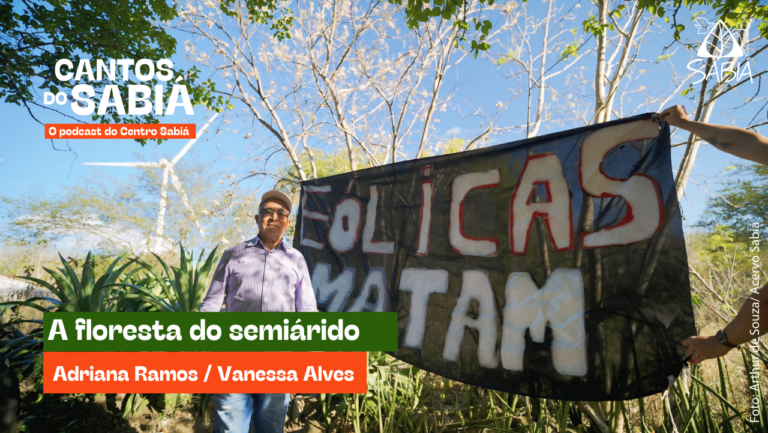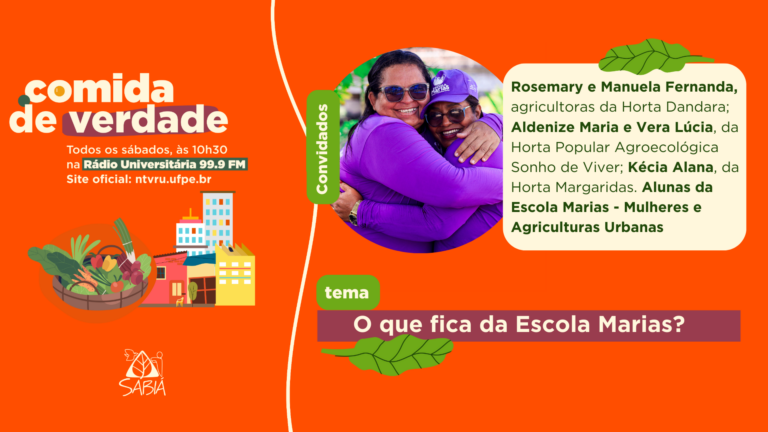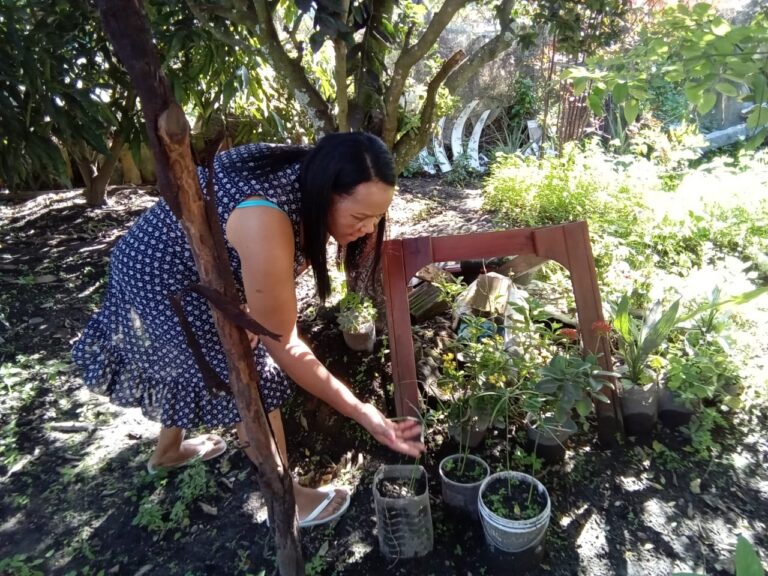Sabiá Center participates in the 12th Agroecology Congress in Rio de Janeiro
Maria Letícia Menezes
Sabiá Center Communication Intern
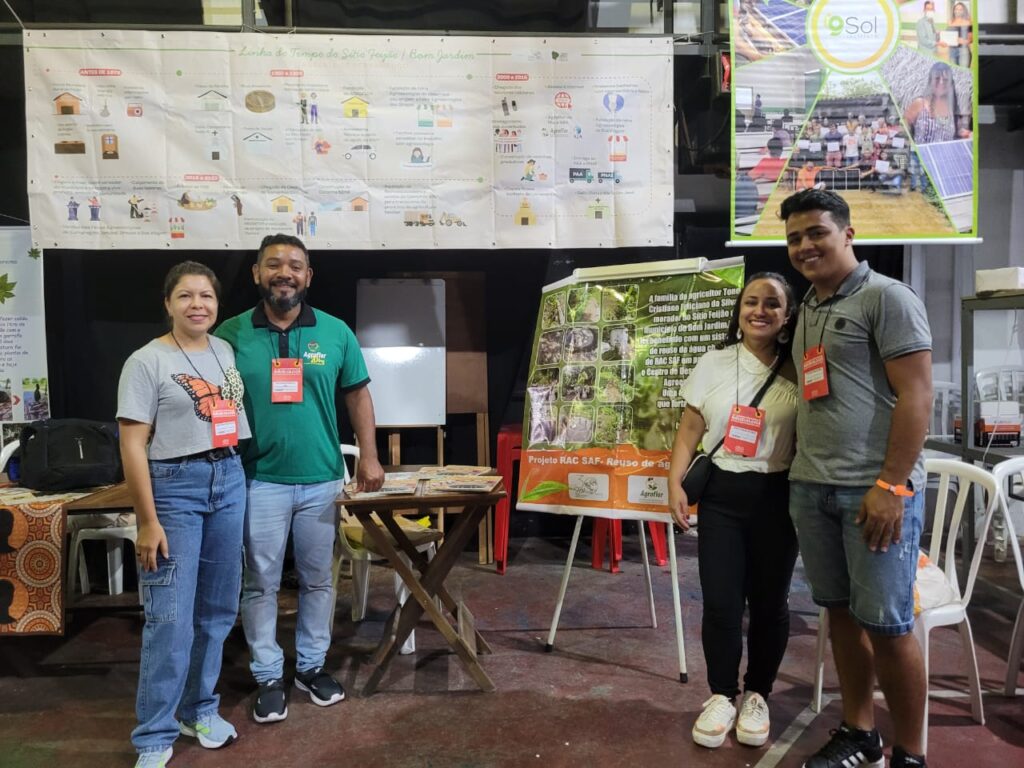
Last week, from November 20 to 23, the Lapa neighborhood in Rio de Janeiro hosted the 12th Brazilian Congress of Agroecology (CBA), after three years without the event. This is because the last face-to-face meeting took place in 2019, before the pandemic. This year, the theme of the CBA had different meanings. “Agroecology in the mouths of the people” was the motto that guided these days of congress.
The theme carries with it all the importance of the diversity of people in the agroecological movement, as well as valuing traditional knowledge. After all, agroecology is an ancient practice that has been on people’s lips for a long time. The motto chosen also shows that agroecology goes beyond the plate. During the three days of the congress, topics such as environmental racism and healing through plants were discussed.
Around 7,000 people attended the 12th CBA, and more than 3,000 papers on agroecology and related topics were presented at the event. In addition, several programs took place simultaneously, so everyone present was able to take part in different activities. From discussions to film screenings, conferences, exchanges of experiences and the National Fair of Knowledge and Flavors, with various agroecological products on sale.
Sabiá Center attends CBA
The Sabiá Center was present at the CBA with Aniérica Almeida, Technical-Pedagogical coordinator, Juliana Peixoto, territorial coordinator in Agreste, Tone Cristiano, member of the board of directors and young people who are part of the Commission of Young Multipliers of Agroecology (CJMA). Sabiá had the opportunity to take part in various activities.
One of the highlights was the Women’s Plenary, which took place on the first day of the meeting and focused on the fight against violence against women and the role of women in agroecology. At the same time, the Northeast Agroecology Ater Network launched the second stage of the Baraúnas Project, at a time of debate on Feminist Rural Technical Assistance.
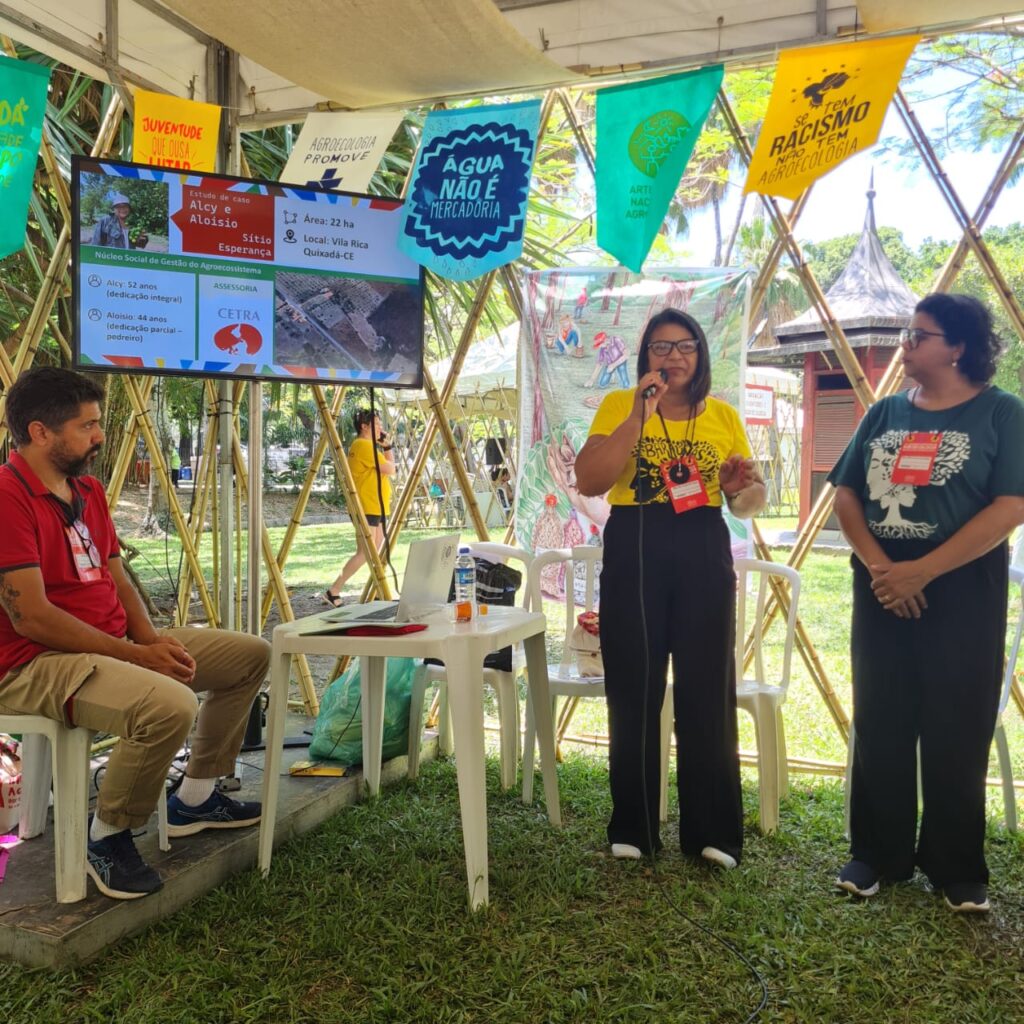
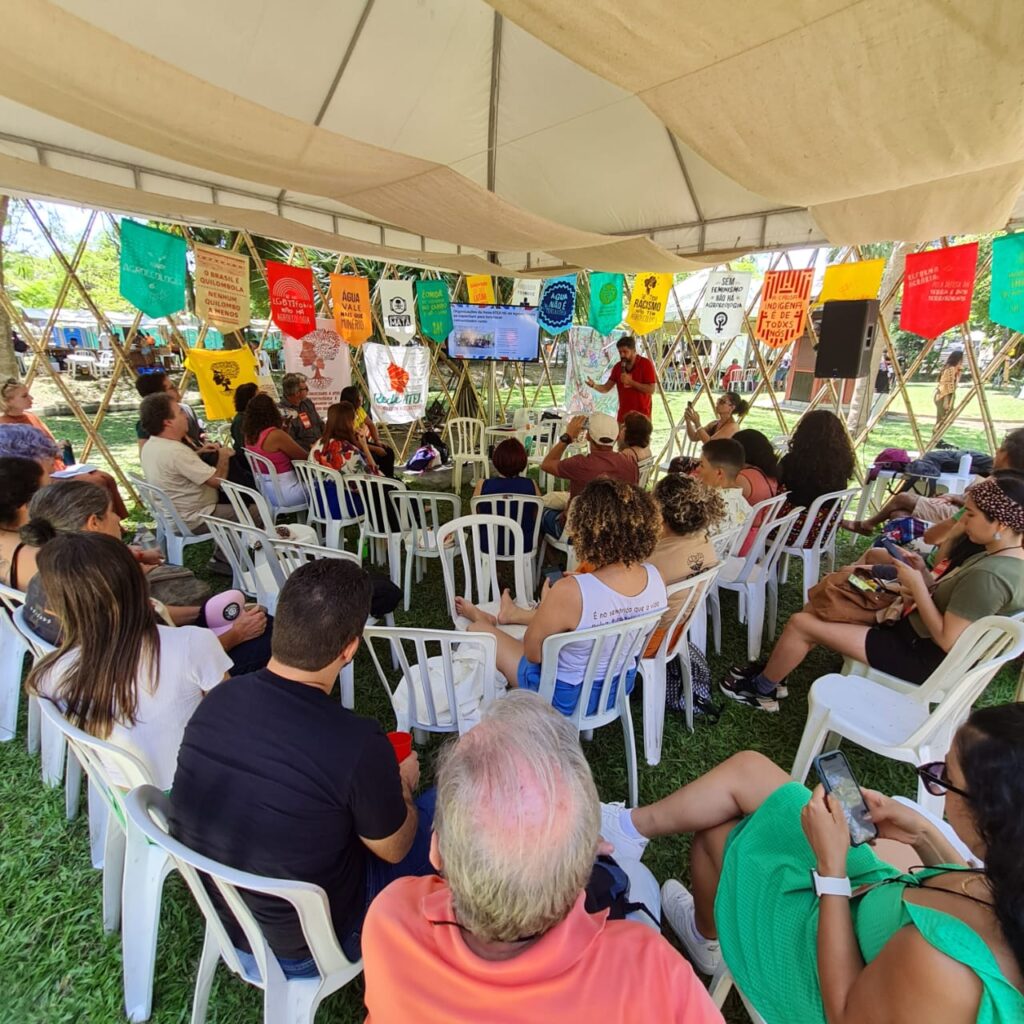
On Tuesday (21), the National Fair of Knowledge and Flavors and the Farmers’ Innovation Yard took place simultaneously. At the fair, young people Gildo José and Tatiane Faustino will be selling their products (jams and jellies), which they produce in the Pernambuco hinterland, as well as the products of various young people from the CJMA, such as handmade bags and embroidery.
In the Innovation Field, the Sabiá Center, in partnership with the Agroecological Farmers’ Association of Bom Jardim (Agroflor), presented the experience of gray water reuse combined with the Agroforestry System, RAC/SAF. Tone Cristiano, a member of the Sabiá board and also a representative of Agroflor, presented the project and the timeline of Sítio Feijão, in the town of Bom Jardim.
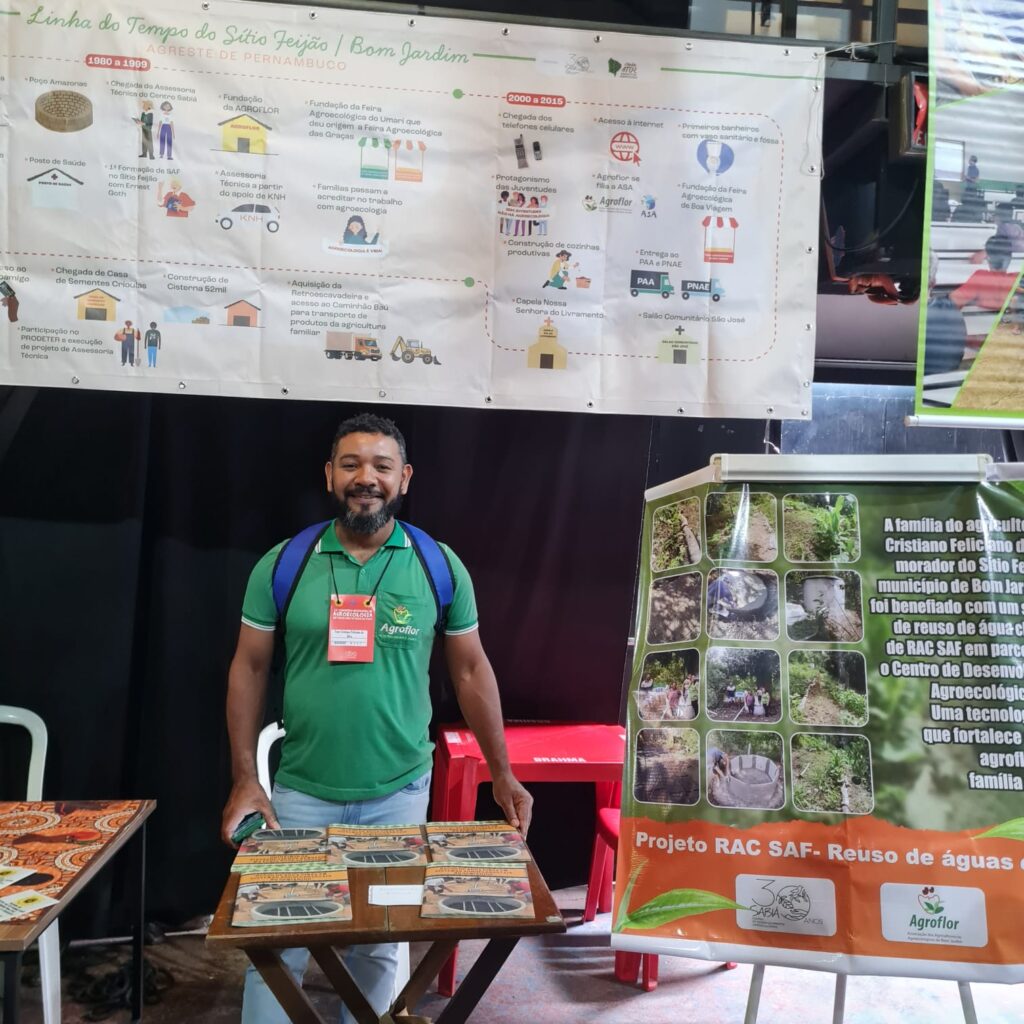
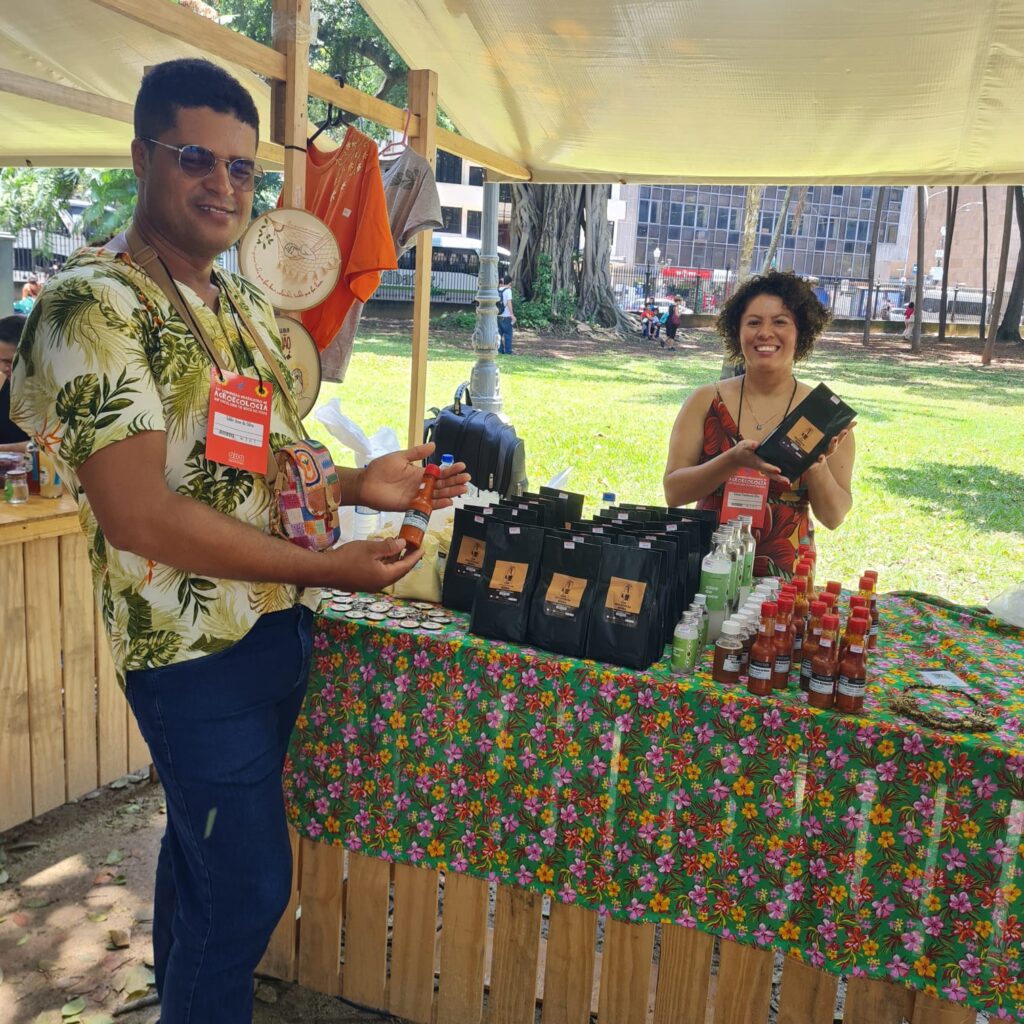
Urban agriculture on the agenda
Also on the 21st, there were “Knowledge Sheds”, which brought together groups to discuss and present work on specific topics. Aniérica Almeida, Sabiá’s technical-pedagogical coordinator, was present at the Urban Agriculture Shed (AU). Meanwhile, the young people took part in the “Youth and Agroecology” stall.
Present at the event was the National Urban Agriculture Collective (CNAU) and representatives from the Ministry of Agrarian Development (MDA) and the Ministry of Social Development and Fight against Hunger (MDS). The demands and priorities for urban agriculture policy in big cities were the focus of the debate.
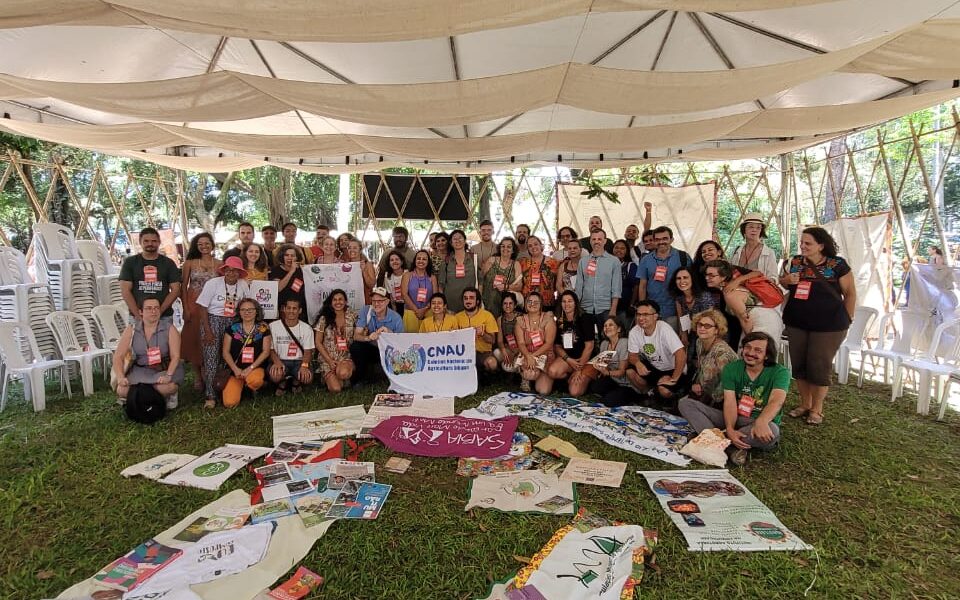
The next national meeting of the agenda was also discussed. According to Aniérica, “It was decided to hold the 2nd National Meeting on Urban Agriculture, and we from Pernambuco called for it to take place in the Northeast, because urban agriculture is thriving here, despite the invisibility and lack of public policies.”
The experiences of the Dandara Popular Agroecological Garden, which the Sabiá Center has been advising since 2020, and the Agroecological Garden of the March 8 occupation, advised by FASE, were presented.
In addition, the Sabiá Center also had the opportunity to present a study on the quantification of environmental services for coping with climate change in 12 agroforestry systems that have been advised by Sabiá. The research was carried out in partnership with the Federal Rural University of Pernambuco (UFRPE), and was supported by Terre Des Hommes.
The 12th CBA stood out for its diversity and occupied the center of Rio de Janeiro with a lot of agroecology. “This was a very special Congress, because it is taking place at a very important time for Brazil, a time of reconstruction,” said Aniérica Almeida about the importance of the event.
Nothing found.


